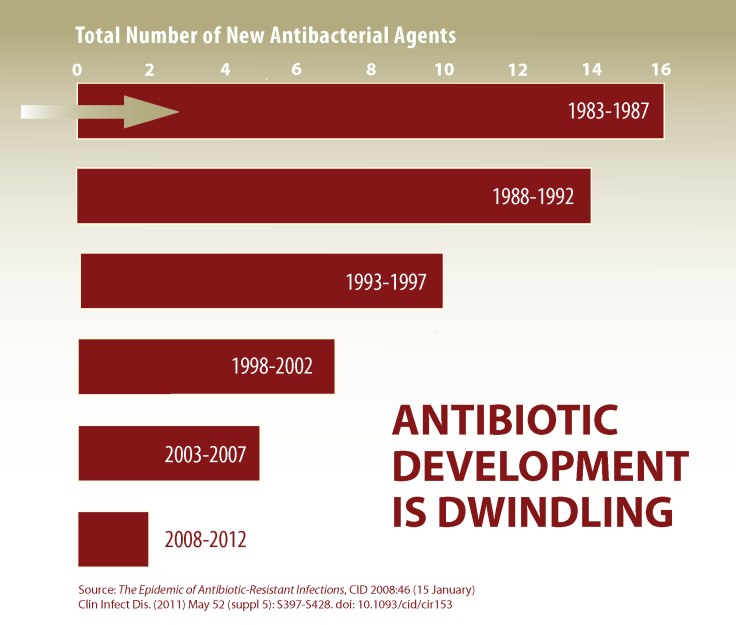Antibiotics Missing From U.S. Drug Pipeline, Researchers Warn

The American pharmaceutical industry has largely neglected the development of new antibiotics, say the authors of an article published Sunday in Clinical Infectious Diseases.
Since 2009, U.S. regulators have only approved two new antibiotics, telavancin and ceftaroline fosamil, with the number of large manufacturers involved in antibiotic development continuing to dwindle. The report is part of an initiative intended to develop 10 new products by the end of the decade.
The most pressing concern in the development of new antibiotics, the report authors wrote, is the dearth of drug candidates intended to fight infections caused by gram-negative bacilli, GNB, with particular focus on Enterococcus faecium, Staphylococcus aureus, Klebsiella pneumoniae, Acinetobacter baumannii, Pseudomonas aeruginosa, and Enterobacter species — known collectively as ESKAPE pathogens.
Members of the Infectious Diseases Society of America (IDSA) warn that these ESKAPE bugs pose a dangerous threat. The group has identified 7 new drug candidates for treatment of infections caused by such drug-resistant bugs, though analysts have no way of guaranteeing whether the drugs would pass regulatory muster.
Worse still, none of the drug candidates would work against the strongest of the resistant bacteria, even if they were to win approval from the Food and Drug Administration.
"We're losing ground because we are not developing new drugs in pace with superbugs' ability to develop resistance to them," said Dr. Helen W. Boucher, lead author of the policy paper and a member of the IDSA board of directors. "We're on the precipice of returning to the dark days before antibiotics enabled safer surgery, chemotherapy, and the care of premature infants. We're all at risk."
Dr. Tom Frieden, director of the U.S. Centers for Disease Control and Prevention, refers to the drug-resistant bugs as "nightmare bacteria." In a statement, he said: "Doctors, nurses, hospital leaders, and public health, must work together now."
To that end, the research group called for a varied approach to increasing the number of new antibiotics on the market, urging new financial incentives for pharmaceutical manufacturers as well as clarification of regulatory rules for antibiotic approval. The researchers also called for increased funding for research, improvements in preventative medicine fighting infections, as well as new public health efforts in the form of better data collection and surveillance of drug resistance.
Finally, the group said clinicians must make more prudent use of antibiotics to slow the evolution of drug-resistant "super bugs."
Published by Medicaldaily.com



























